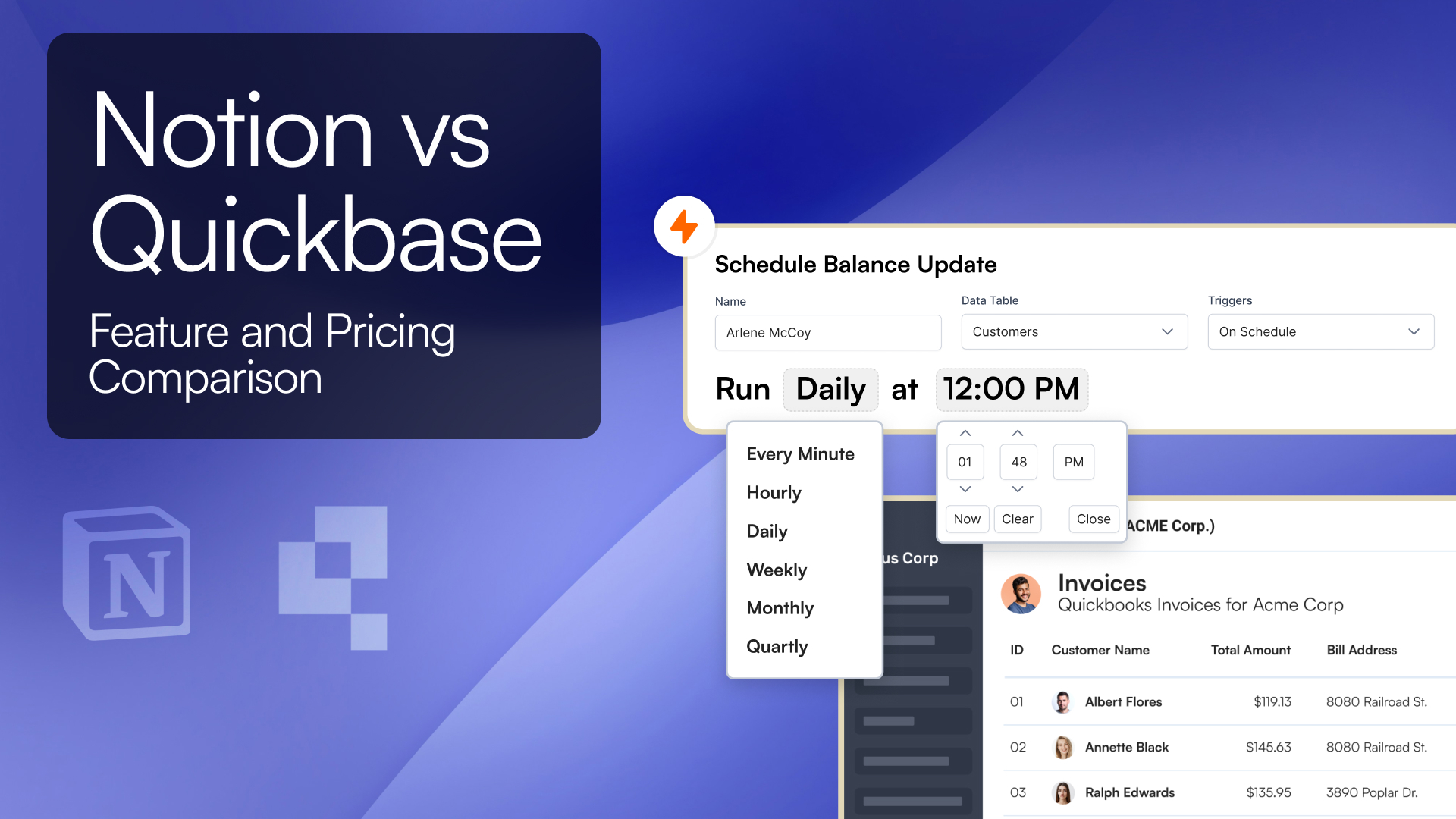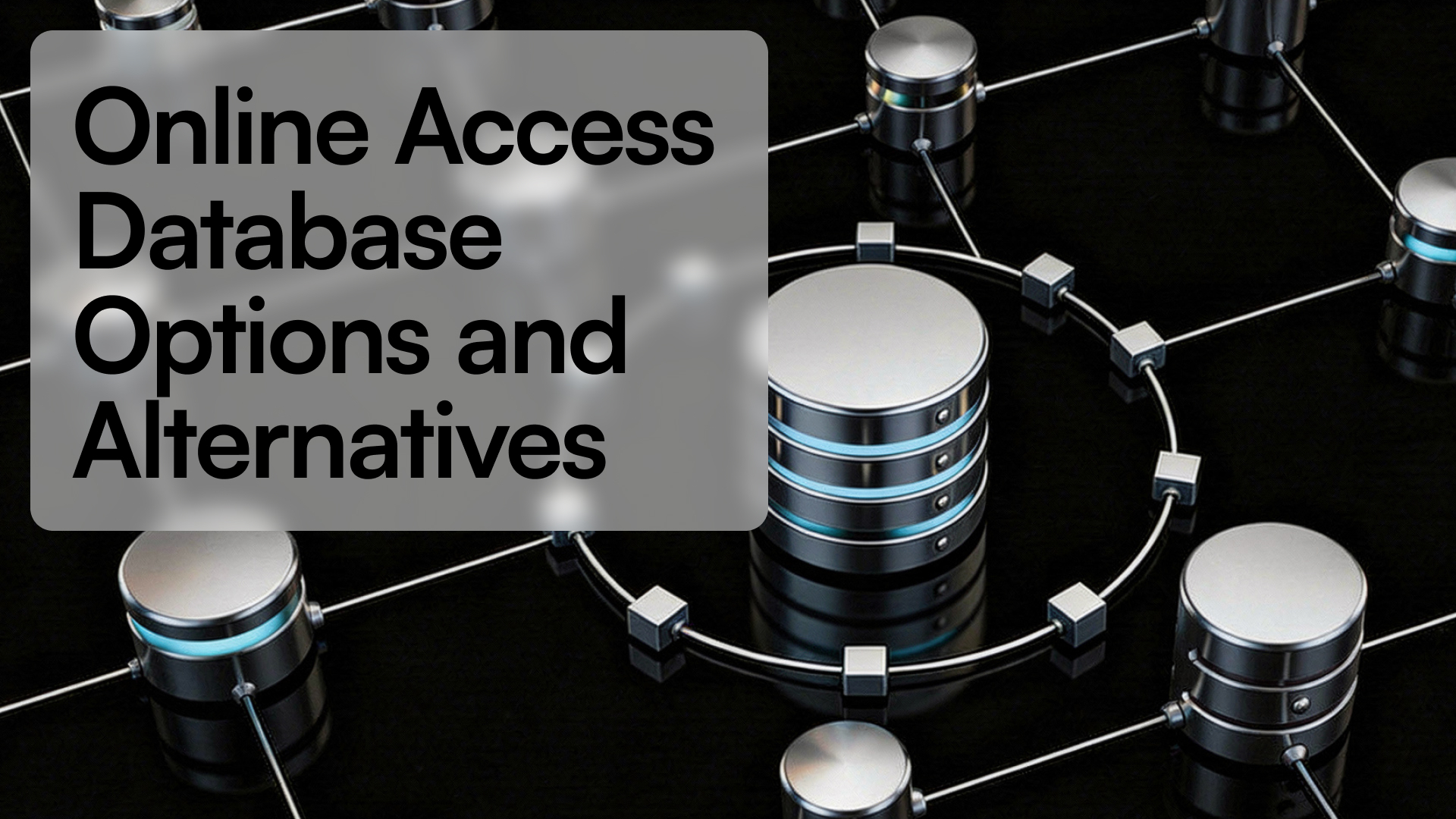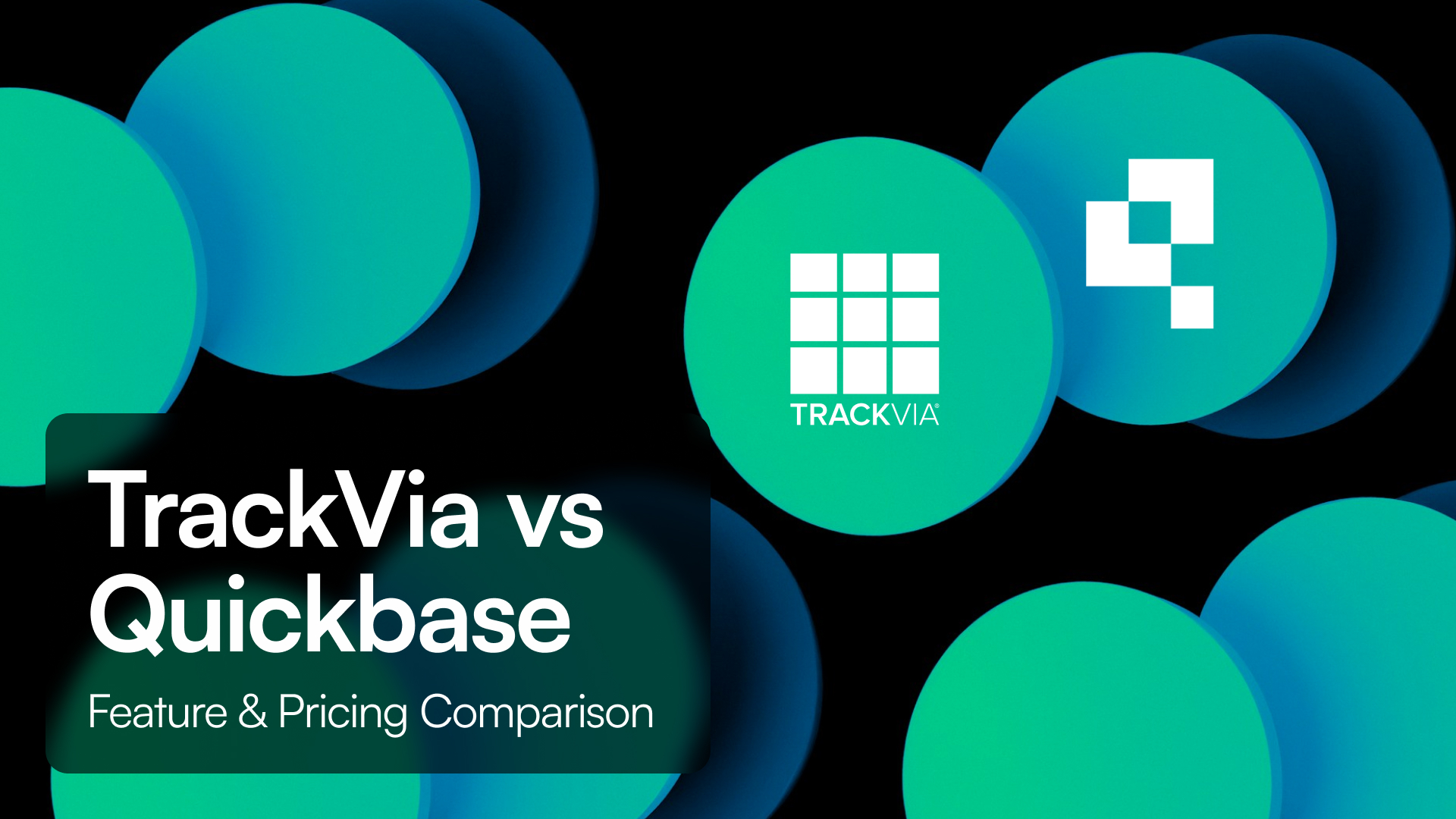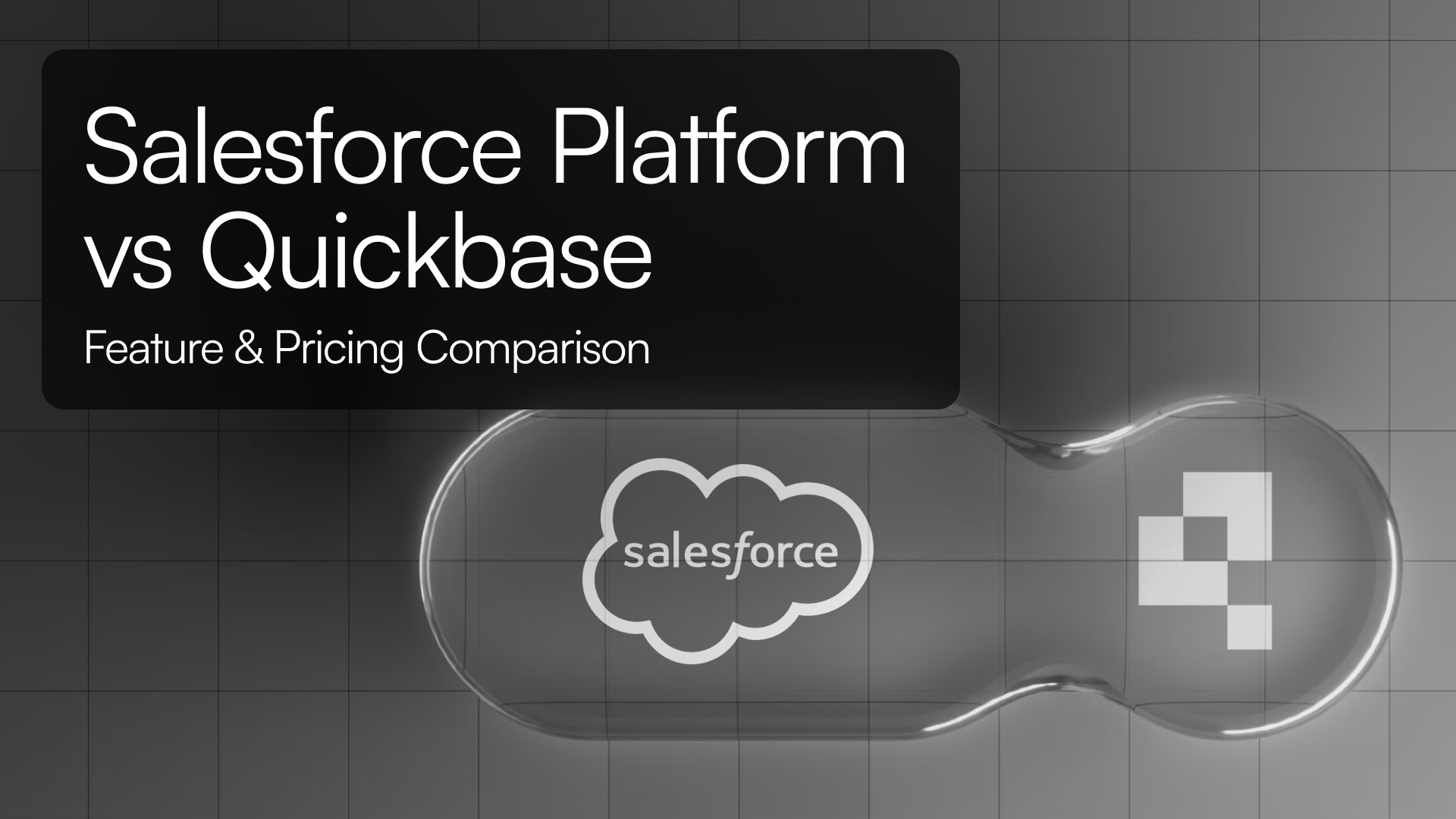TL;DR Summary
-
Notion is a flexible workspace for notes, wikis, task tracking, and lightweight databases. It’s simple and highly collaborative but not meant for structured workflows or complex business apps.
-
Quickbase is an enterprise-grade platform for building scalable, no-code applications with workflows, dashboards, and relational databases.
-
Tadabase bridges both worlds—offering app-building power, workflow automation, compliance support, and flat per-account pricing.
Introduction
Notion and Quickbase are often considered for different purposes, yet some teams find themselves comparing the two while seeking the right platform for internal tools, collaboration, or operational workflows.
Notion shines as a modern team workspace for managing documents, to-do lists, and internal wikis. It’s incredibly flexible and easy to use. Quickbase, in contrast, is built for structured apps and process management—where relational databases, automations, and access control matter.
This post explores where each excels, where they fall short, and why Tadabase may offer a simpler, more scalable solution for building internal business apps.
Features Compared
App Building & Data Structure
-
Notion allows teams to create linked databases and content blocks. It’s flexible, but lacks true relational logic or backend control.
-
Quickbase is built for structured applications, using relational tables, forms, logic workflows, and permissions.
-
Tadabase combines app building, visual workflows, dashboards, and secure user access in a drag-and-drop environment.
Automation
-
Notion supports basic automations through third-party tools like Zapier, but lacks native workflow logic or triggers.
-
Quickbase includes pipelines, record triggers, and notifications for full application workflows.
-
Tadabase enables native automation through visual builders, scheduled tasks, logic conditions, PDF generation, and webhooks.
Integrations
-
Notion connects to common productivity tools but doesn’t have advanced backend logic for workflows or APIs.
-
Quickbase integrates with enterprise systems and supports a full REST API.
-
Tadabase offers open APIs, built-in integrations, and data pipelines for external system sync.
Compliance & Security
-
Notion is SOC 2 and GDPR compliant, with audit logs on enterprise plans, but lacks HIPAA support and granular access control.
-
Quickbase supports HIPAA, SOC 2, detailed audit logs, and role-based access control across enterprise plans.
-
Tadabase includes built-in audit logs, permission controls, and HIPAA-readiness on all paid plans.
Pricing Overview
Notion
-
Free Plan: Basic personal use and collaboration
-
Plus Plan: Around $10/user/month with team access and unlimited blocks
-
Business Plan: ~$15/user/month with SSO and audit tools
-
Enterprise: Custom pricing for advanced permissions and analytics
Quickbase
-
Team Plan: Starts around $35/user/month with basic workflows
-
Business Plan: ~ $55/user/month with enhanced automation, reports, and compliance
-
Enterprise: Custom pricing for governance, compliance, and performance at scale
Tadabase
-
Flat-rate pricing per account—not per user.
-
All plans include unlimited users, apps, records, automations, compliance, and integrations.
User Ratings
Notion
-
Rated highly for user experience, collaboration, and visual organization.
-
Common complaints include limited offline functionality, minimal automation, and no structured app logic.
Quickbase
-
Strong ratings for flexibility, automation, and enterprise features.
-
Users note a steep learning curve and pricing that scales quickly due to per-user fees.
Pros and Cons
Notion Pros
Modern, visual interface
Great for notes, wikis, docs, and collaboration
Easy to adopt across teams
Notion Cons
Not ideal for structured applications
Minimal native automation
Limited compliance and audit controls
Quickbase Pros
Built for internal tools and business apps
Automation and workflow pipelines
Enterprise-grade compliance and access controls
Quickbase Cons
Expensive for large teams (per-user pricing)
Steep learning curve
Rigid UI compared to modern workspaces
Final Verdict
Choose Notion if your team needs a flexible digital workspace to manage documentation, plan projects, and collaborate in real-time.
Choose Quickbase if you need structured business apps with automation, reporting, and governance at scale—but expect to pay more and onboard slower.
Choose Tadabase if you want the best of both worlds: app-building power, automation, security, and scalability—without per-user fees or enterprise complexity.
Why Teams Choose Tadabase
-
Flat pricing per account with unlimited users
-
Visual builder with full control over layout, data, and components
-
Built-in automation, scheduled tasks, and PDF generation
-
Audit logging, permissions, HIPAA compliance, and secure hosting
-
APIs, integrations, and pipelines to connect to your stack
Want to build custom tools without custom pricing?
Try Tadabase for free.







